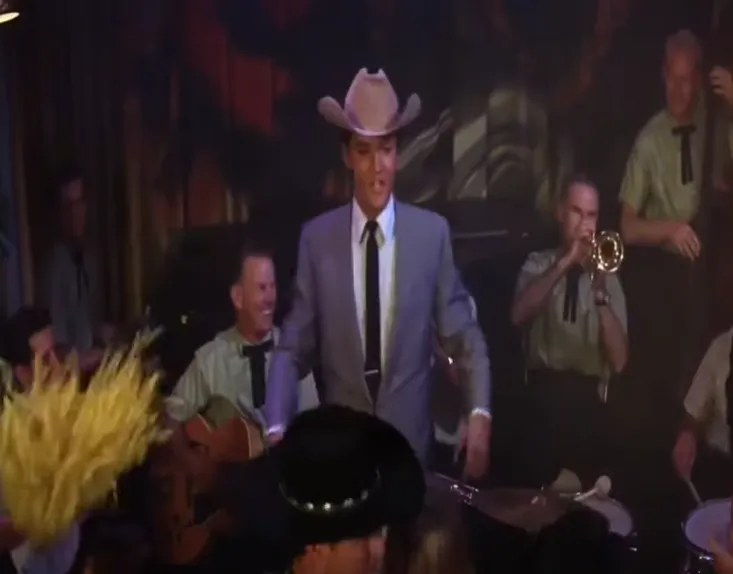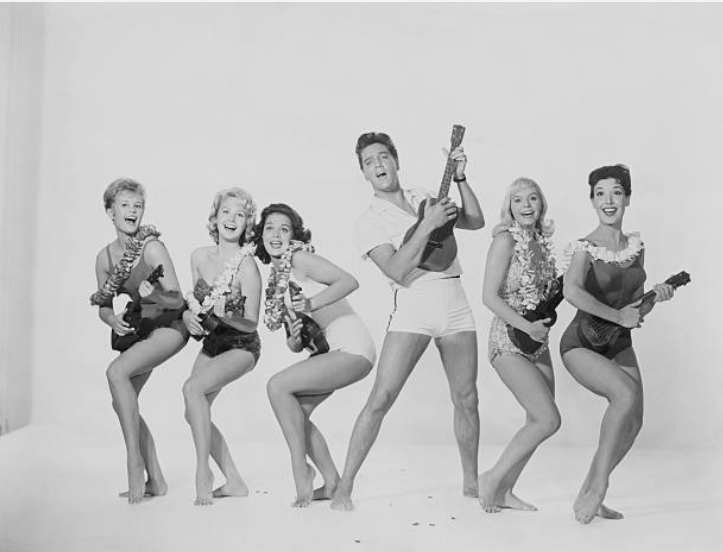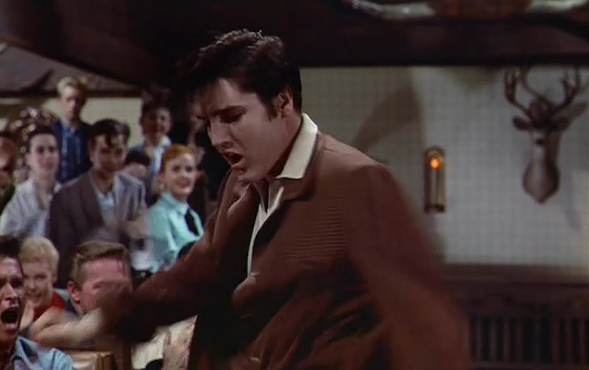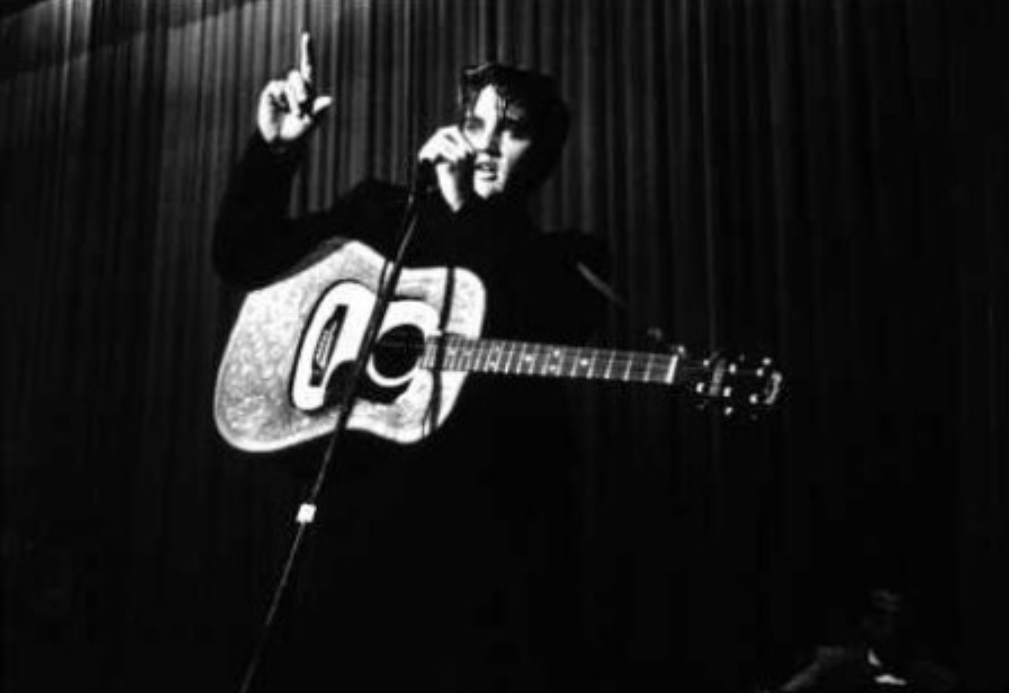Reviving the King: Elvis Presley's '68 Comeback Special and Its Enduring Legacy
(watch the video below)
Elvis Presley's '68 Comeback Special stands as a monumental moment in the history of music and television. A defining moment for Presley himself and for the cultural landscape of the late 1960s, this televised event marked his return to live performance after a hiatus from concert touring. This essay delves into the significance of the '68 Comeback Special, exploring its impact on Presley's career, its role in revitalizing his image, and its lasting legacy in music and popular culture.
Elvis Presley, often referred to as the "King of Rock and Roll," was an iconic figure whose influence transcended music to impact fashion, film, and popular culture as a whole. By the late 1960s, however, Presley's career had reached a crossroads. Amidst changing musical trends and personal struggles, he found himself seeking a resurgence. The '68 Comeback Special emerged as a pivotal moment, providing Presley with a platform to reclaim his throne and reaffirm his status as one of the greatest entertainers of all time.

To understand the significance of the '68 Comeback Special, one must first examine the context in which it took place. By the mid-1960s, Presley's career trajectory had shifted. Despite his early successes and unprecedented fame in the 1950s, his film career had become the primary focus, with a string of largely forgettable movies dominating his output. Concurrently, the British Invasion and the rise of bands like The Beatles and The Rolling Stones had altered the musical landscape, leaving Presley somewhat sidelined in the evolving world of rock and pop music.
In addition to external factors, Presley grappled with personal challenges, including his tumultuous relationship with his manager, Colonel Tom Parker, and his own dissatisfaction with the direction of his career. Feeling increasingly disconnected from his musical roots and longing to reconnect with his audience, Presley sought a change.
The idea for the '68 Comeback Special was born out of Presley's desire to return to his musical roots and reclaim his status as a live performer. Conceived as a television special, it aimed to reintroduce Presley to audiences in a way that showcased his talent, charisma, and undeniable star power. The special would be divided into segments, each highlighting a different aspect of Presley's musical journey, from his early rockabilly roots to his gospel influences.

In preparation for the special, Presley and his team embarked on an intensive rehearsal process. Working closely with musical director Billy Goldenberg and choreographer Bones Howe, Presley honed his performance skills and meticulously crafted the setlist. Drawing from his extensive catalog of hits, as well as some lesser-known gems, the setlist was designed to showcase the breadth and depth of Presley's talent.
On December 3, 1968, the '68 Comeback Special aired on NBC, captivating audiences and critics alike. The special opened with a now-iconic sequence featuring Presley clad in black leather, performing an electrifying medley of hits alongside a small band of musicians. This raw, stripped-down performance marked a departure from the polished, sanitized image that had come to define Presley's film career, instead showcasing the raw energy and charisma that had made him a star in the first place.
Throughout the special, Presley demonstrated his versatility as a performer, effortlessly transitioning between rock and roll, blues, gospel, and ballads. Standout moments included his soulful rendition of "If I Can Dream," a powerful anthem of hope and unity that resonated deeply with audiences in the midst of social and political turmoil.

In addition to his solo performances, Presley was joined by special guests, including members of his original band, The Jordanaires, and guitarist Scotty Moore. These collaborations added an extra layer of authenticity and nostalgia to the proceedings, reminding audiences of Presley's roots in the vibrant musical landscape of the 1950s.
The '68 Comeback Special was an unequivocal success, both critically and commercially. It reinvigorated Presley's career, paving the way for a return to live performance and a series of successful Las Vegas residencies in the 1970s. Moreover, it redefined the public perception of Presley, transforming him from a relic of the past into a relevant, contemporary artist.
The legacy of the '68 Comeback Special extends far beyond its initial broadcast. It remains a touchstone of popular culture, referenced and revered by subsequent generations of musicians and fans. Its influence can be seen in the countless tribute performances, cover versions, and homages that continue to celebrate Presley's enduring legacy.

In conclusion, the '68 Comeback Special stands as a defining moment in the career of Elvis Presley and a landmark event in the history of music and television. It provided Presley with a platform to reclaim his throne as the King of Rock and Roll, revitalizing his career and reaffirming his status as one of the greatest entertainers of all time. More than fifty years after its initial broadcast, the '68 Comeback Special continues to captivate audiences and inspire artists, a testament to the enduring power and influence of Elvis Presley.
List of songs performed by Elvis Presley in the '68 Comeback Special: ▶️ Click name's song for listening and more information
1. "Heartbreak Hotel"
2. "Hound Dog"
3. "All Shook Up"
4. "Can't Help Falling in Love"
5. "Jailhouse Rock"
6. "Love Me Tender"
7. "Blue Suede Shoes"
8. "Baby, What You Want Me to Do"
9. "Trying to Get to You"
10. "One Night"
11. "Memories"
12. "Nothingville"
13. "Guitar Man"
14. "Let Yourself Go"
15. "Big Boss Man"
16. "It Hurts Me"
17. "If I Can Dream"



